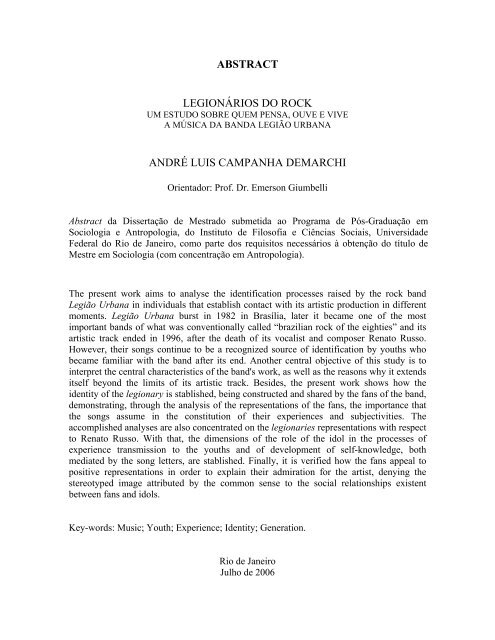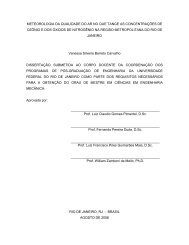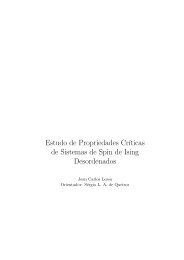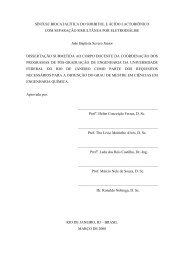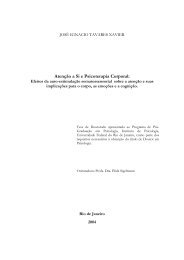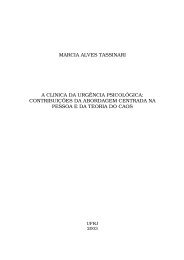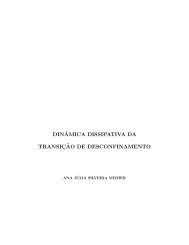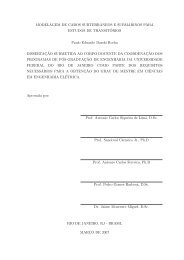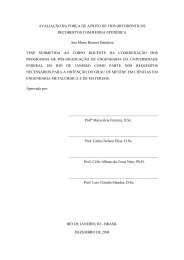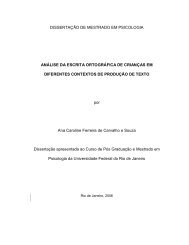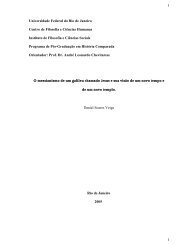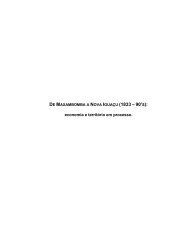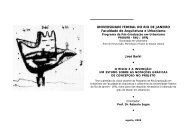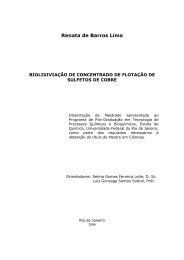legionários do rock andré luis campanha demarchi - UFRJ
legionários do rock andré luis campanha demarchi - UFRJ
legionários do rock andré luis campanha demarchi - UFRJ
Create successful ePaper yourself
Turn your PDF publications into a flip-book with our unique Google optimized e-Paper software.
ABSTRACT<br />
LEGIONÁRIOS DO ROCK<br />
UM ESTUDO SOBRE QUEM PENSA, OUVE E VIVE<br />
A MÚSICA DA BANDA LEGIÃO URBANA<br />
ANDRÉ LUIS CAMPANHA DEMARCHI<br />
Orienta<strong>do</strong>r: Prof. Dr. Emerson Giumbelli<br />
Abstract da Dissertação de Mestra<strong>do</strong> submetida ao Programa de Pós-Graduação em<br />
Sociologia e Antropologia, <strong>do</strong> Instituto de Filosofia e Ciências Sociais, Universidade<br />
Federal <strong>do</strong> Rio de Janeiro, como parte <strong>do</strong>s requisitos necessários à obtenção <strong>do</strong> título de<br />
Mestre em Sociologia (com concentração em Antropologia).<br />
The present work aims to analyse the identification processes raised by the <strong>rock</strong> band<br />
Legião Urbana in individuals that establish contact with its artistic production in different<br />
moments. Legião Urbana burst in 1982 in Brasília, later it became one of the most<br />
important bands of what was conventionally called “brazilian <strong>rock</strong> of the eighties” and its<br />
artistic track ended in 1996, after the death of its vocalist and composer Renato Russo.<br />
However, their songs continue to be a recognized source of identification by youths who<br />
became familiar with the band after its end. Another central objective of this study is to<br />
interpret the central characteristics of the band's work, as well as the reasons why it extends<br />
itself beyond the limits of its artistic track. Besides, the present work shows how the<br />
identity of the legionary is stablished, being constructed and shared by the fans of the band,<br />
demonstrating, through the analysis of the representations of the fans, the importance that<br />
the songs assume in the constitution of their experiences and subjectivities. The<br />
accomplished analyses are also concentrated on the legionaries representations with respect<br />
to Renato Russo. With that, the dimensions of the role of the i<strong>do</strong>l in the processes of<br />
experience transmission to the youths and of development of self-knowledge, both<br />
mediated by the song letters, are stablished. Finally, it is verified how the fans appeal to<br />
positive representations in order to explain their admiration for the artist, denying the<br />
stereotyped image attributed by the common sense to the social relationships existent<br />
between fans and i<strong>do</strong>ls.<br />
Key-words: Music; Youth; Experience; Identity; Generation.<br />
Rio de Janeiro<br />
Julho de 2006


